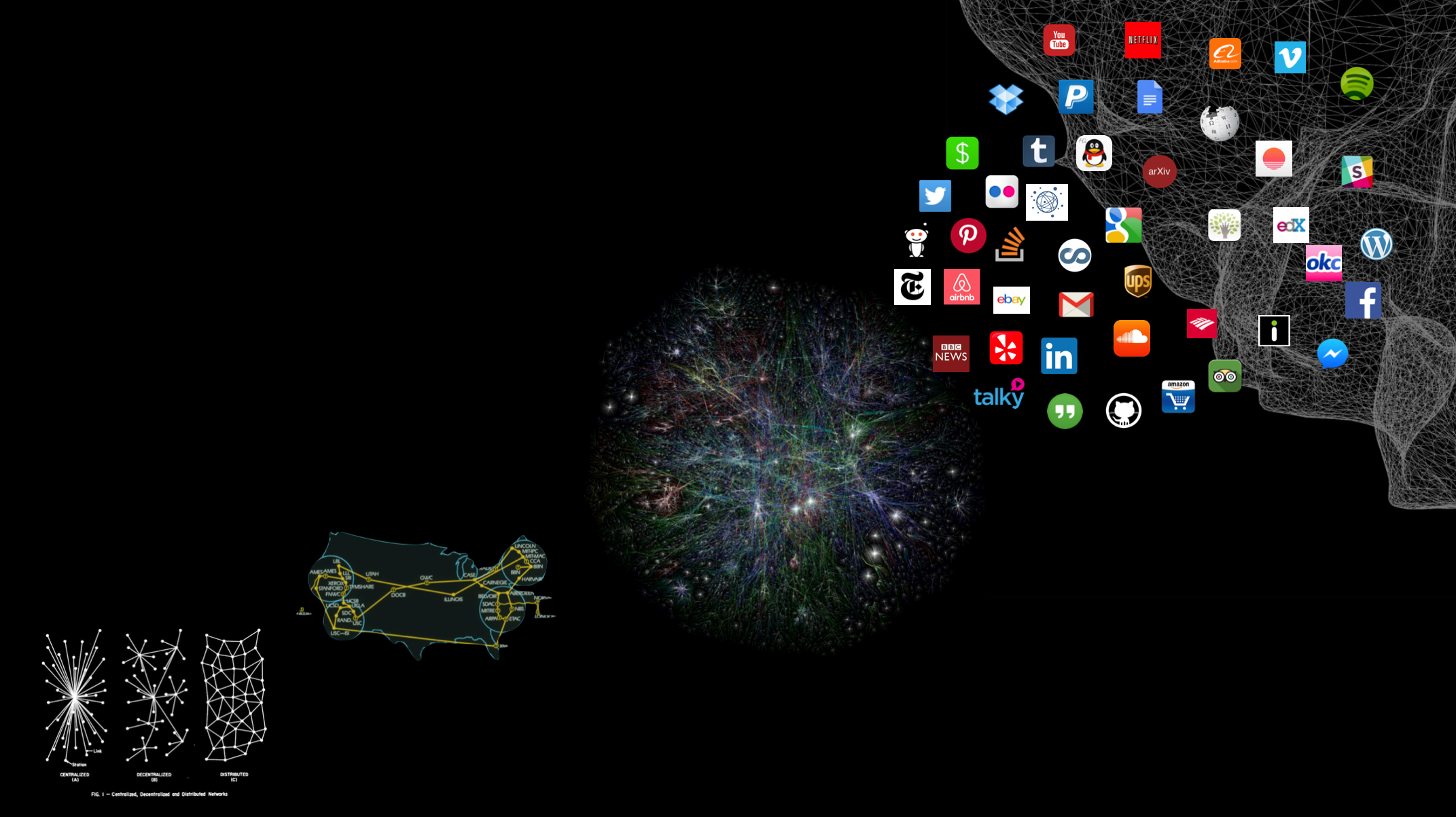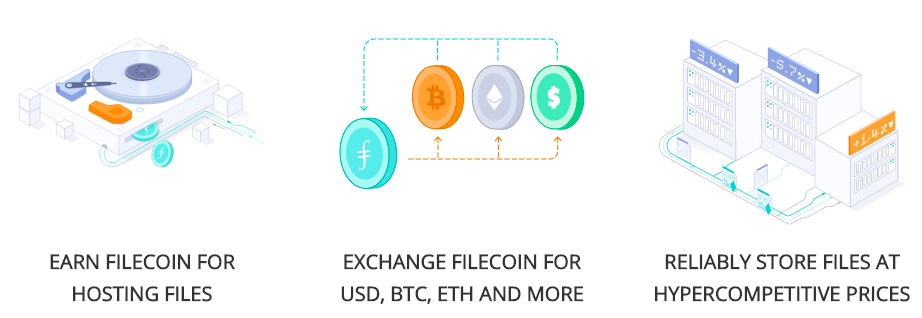Protocol Labs is a research, development, and deployment lab for network protocols. We believe the internet is humanity’s most important technology. Our mission is to improve the internet and computing, generally. We are doing so by creating groundbreaking protocols, and speeding up the pipeline from ideas on paper to users’ hands. Today I’m excited to discuss the challenges of our time, our inspirations, our methods, our projects, and our business model. This post is just a short summary of our vision and plans for the future. In the coming months and years we’ll continue to expand on this vision with articles, talks, projects, and actions.
# Our Background: the challenges of our time

The advent of computing radically transformed humanity, and so has the flourishing of our global nervous system: the Internet. This still-nascent medium of communication, of digital existence, will connect us and empower us in ways we've only begun to understand. In just a few short decades we've acquired tremendous, almost magical superpowers: we can speak to half the planet, at any time and from almost anywhere; we can explore and search the most complete compendium of human knowledge in seconds; we can reason about and solve tremendously difficult problems; we can work, play, and be together at a distance; we can conjure systems of digital and mechanical agents to do our bidding; we can change the world, we can save lives, we can wield all the powers of our species, for good and bad, with a sequence of keystrokes.
And yet, this is only the beginning of computing's impact on humanity. It's hard to understand that human life was quite different decades ago, harder still to grasp how fundamentally different we are from our ancestors thousands of years in the past. We're living during a radical phase transition in the history of life and intelligence on Earth, and computation is a breakthrough on the order of genetic evolution. Long term, universal computation will transform us more than language has, which is indeed saying something. But it is important to realize we will see radical changes in the short term too: computing and the internet will grant us even greater superpowers, as we fuse ever tighter with our technology. In one, two, maybe three short decades, we will come to inhabit virtual realities, we will overlay our digital worlds onto the physical, we will add computers to everything, we will embrace software and hardware companions, we may wire the gap between our individual brains and our shared one, and -- who knows -- we may even spark artificial intelligence in this short time frame.
The horizon of computing is exciting and turbulent. We face optimistic progress, significant challenges, and a host of existential threats. We navigate this complex landscape by grounding ourselves in two important goals. I will speak more about these in future communications. (For a longer treatment of this background, see this talk I gave (opens new window))
(1) First, we should improve the internet and computing generally. Secure and robust access to information, to communication, and to computing has become a critical part of what it means to be a modern human. The internet has become the main vehicle for human interactions worldwide, and it will only become more so as our devices and interfaces improve. Brain-machine interfaces will cement this, and those are not so far away. Therefore, fixing problems with the internet (opens new window) and upgrading our computational fabric will have tremendous impact for humanity, now and in the future. This is the Why.

(2) And second, we should accelerate the ideas-to-superpowers pipeline. At the heart of computing progress lies a simple process: the research, development, and deployment cycle. Ideas are conceived and refined, encoded into mathematical rules, programmed into software, and deployed into computers, which grants super-powers to humans world-wide. The better and faster we are at sifting ideas through this pipeline, the better and faster our superpowers will come. This is the How.
Breakthroughs from labs that are exclusively or mostly focused on research tend to stay buried as papers. Sometimes the lag is natural, the research is far ahead of its broad applicability. But we find that there are hundreds of breakthroughs useful long before they reach users. It can take many years, even decades, before breakthroughs are realized in products that improve people's lives. This is massively inefficient! Research has to be coupled closely with development and deployment, so that we can iterate through the cycle quickly, and build good products that actually solve problems for people.
# Our Work: IPFS, Filecoin, and the Distributed Web

Even though we are young, we have already created a large ecosystem of interrelated projects and products. These have all spawned from the first, IPFS, and naturally have much to do with decentralized data distribution. Our approach is to carefully modularize projects so that they can serve as many people as possible. Once it is clear a sub-project should be independent, we spin it into its own effort. I will leave the descriptions here short, click through to find out more about each.
(1) The InterPlanetary File System (opens new window) (IPFS) is a new protocol to decentralize the web. IPFS enables the creation of completely decentralized and distributed applications, using content addressing and digital signatures. IPFS makes the web faster, safer, and more open.
(2) Filecoin (opens new window) is a cryptocurrency powered storage network. Miners earn Filecoin by providing open hard-drive space to the network, while users spend Filecoin to store their files encrypted in the decentralized network.
(3) libp2p (opens new window) is a modular networking stack. libp2p brings together a variety of transports and peer-to-peer protocols, making it easy for developers to build large, robust p2p networks.
(4) IPLD (opens new window) is the data model for the Decentralized Web. It connects all data through cryptographic hashes, and makes it easy to traverse and link to.
(5) The Multiformats (opens new window) Project is a collection of protocols to future-proof systems, today. Self-describing formats make your systems interoperable and upgradable.
(6) CoinList (opens new window) is a protocol token fundraising platform. AngelList meets Kickstarter meets Protocol Tokens.
(7) SAFT (opens new window) is a legal framework for protocol token fundraising.
# Our Business Model: Market Protocols

In 2013, while studying Bitcoin, it became clear that cryptocurrencies solved many fundamental issues with protocol development:
A cryptocurrency can address a portion of the value created by the protocol, and it can be allocated to fund protocol creators and maintainers.
This is an unprecedented way to capture a fraction of the value created and feed it back into development of the protocol and its ecosystem, and the creation of more protocols.
What's more, the value capture is coming at the protocol layer and not on applications or services above. The attention and interests of the protocol developers remain aligned with successful outcomes for the protocol.
The cryptocurrency can be used to incent individuals and other groups outside of the original organization to improve and work on the protocol.
It can also be used to fund the entire development of the currency, by pre-selling it as Ethereum did in 2014.
Putting it altogether, the main revenue stream of Protocol Labs will be through holding Market Protocol assets. A Market Protocol is a system that mediates some economic activity, and settles value exchanges using a cryptographic asset. This structure solves economic problems in asymmetric peer-to-peer resource sharing, scaling, services, maintenance, and development. Only a subset of our protocols will be Market Protocols.
Investors. Protocol Labs raised funding from an amazing set of technology investors. It is a diverse group, with different expertise, perspectives, and interests. Their support has been tremendously helpful from the beginning, and will continue to make a crucial difference in our future. We are lucky to work with Union Square Ventures, BlueYard, Y Combinator, Naval Ravikant, and many others (opens new window). A forthcoming post will go into more detail.
# Our Journey

From our new website (opens new window):
Protocol Labs was founded on May 2014, by Juan Benet, inventor of IPFS and Filecoin. That summer, we participated in the YCombinator program (S14). Protocol Labs released IPFS to the world in January 2015. Since then, IPFS has gained enormous traction in a variety of industries and organizations. By 2016, IPFS grew to be one of the most used and relied on technologies in the Blockchain industry, and hailed by thousands of developers as "The Future of the Web." That year, Protocol Labs also created libp2p, IPLD, multiformats, Orbit, and a number of other projects. Our most anticipated project is Filecoin, currently in development.
In the coming weeks, we will make a number of important announcements, including news on Filecoin and CoinList -- a new platform for token fundraising we are releasing this week. The next few months will see us pass a number of exciting milestones on all fronts, as we continue to develop IPFS, Filecoin, and all our projects.
We are so lucky to work with amazing groups of people (opens new window) every day on impactful projects (opens new window). I am eternally grateful to everyone who works at or with Protocol Labs, to contributors to any of our projects, to our investors and advisors who support us, to all our inspiring collaborators. You make all our work possible. Our successes are thanks to you.
We do not know what the future holds, but we think it's going to be filled with exciting challenges, important projects, and groundbreaking results. We've had much of that already, and we look forward to decades more. We will be working relentlessly to achieve our mission and realize our projects. Stay tuned, and thank you.
Juan Benet
Protocol Labs
Founder
